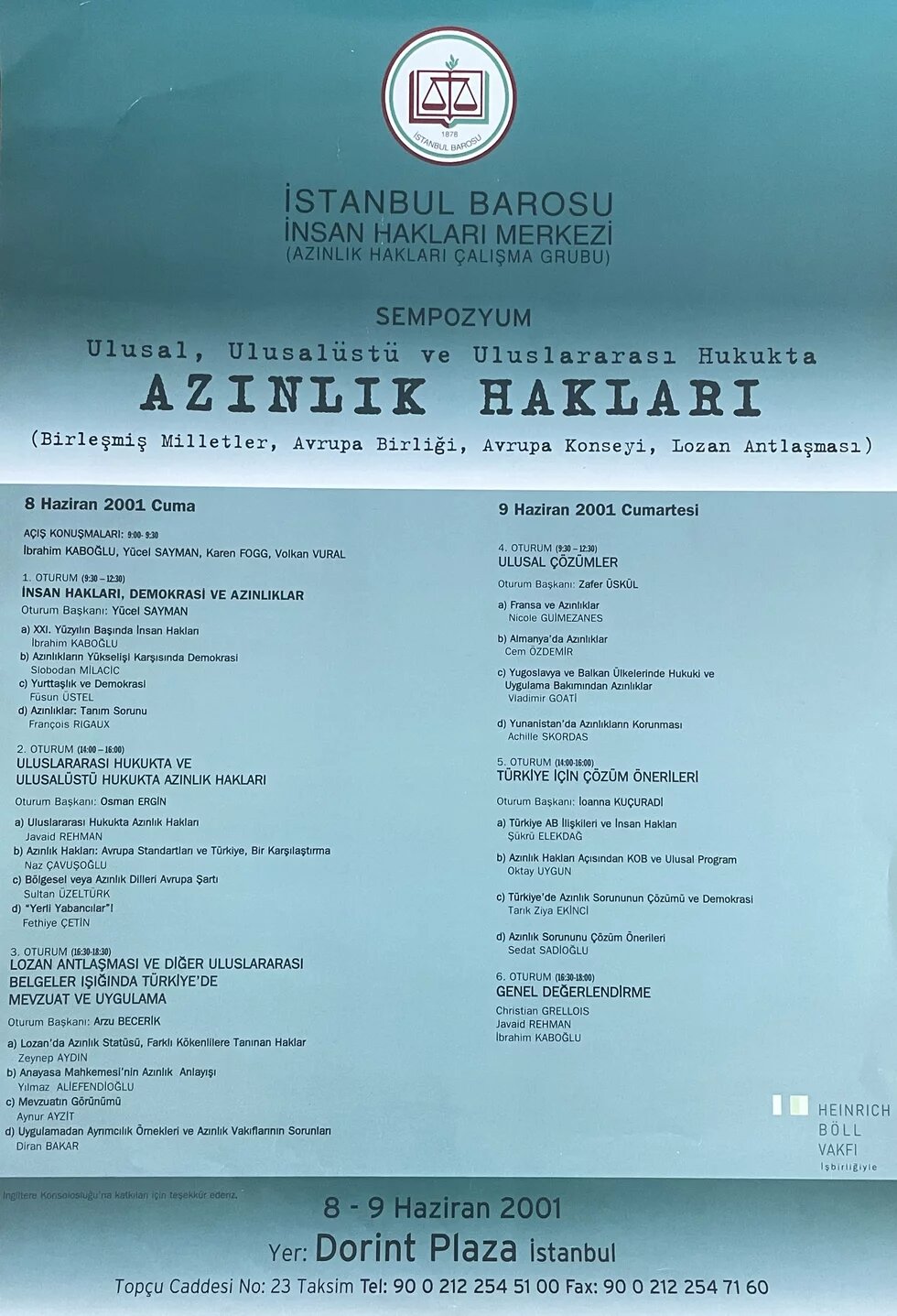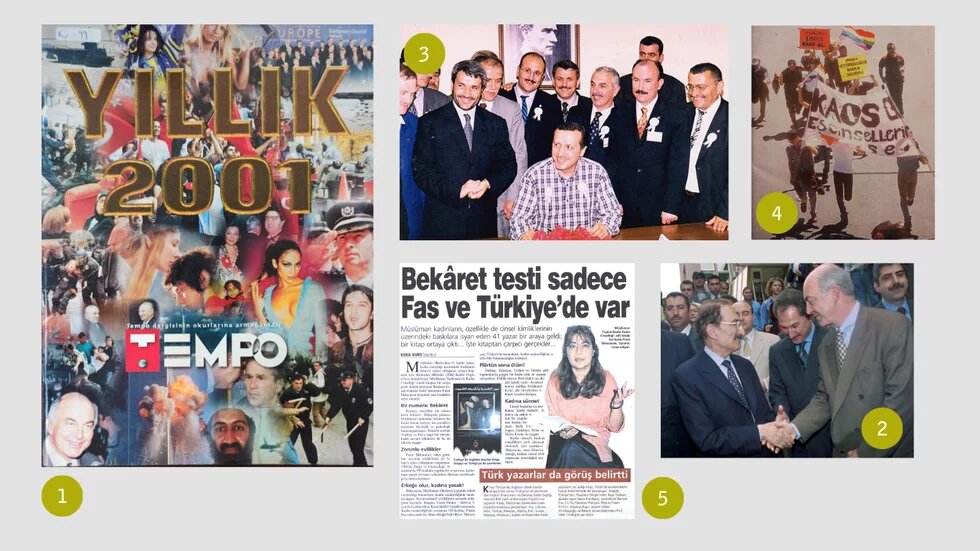
A constitutional code book, a thrown cash register, banks collapsing overnight, and the search for a saviour...
The year 2001 plunged Turkey into a major crisis as early as February. The present government, its leader, and the established order were all crumbling.
That year, the Virtue Party was dissolved, and the reformist wing of the “National Vision Movement” founded a new party, which they described as “conservative democratic”: the Justice and Development Party (AKP).
Meanwhile, from the ruins of the Twin Towers, a new global doctrine arose, one that would prioritise security above all—the global war on terror.
In that turbulent year, Heinrich Böll Stiftung Turkey organised a follow-up symposium on the Copenhagen criteria, focusing on “Minority Rights”, a persistent and unresolved issue in Turkey.
One of the speakers was Cem Özdemir, a German politician of Turkish origin who would later head the German Green Party.
His presence highlighted the reality that while Turks formed the majority here in Turkey, they were also a minority elsewhere.
These dialogues on minority rights soon intertwined with reinterpretations of unofficial history, bringing to light an issue that would profoundly impact Turkish politics and civil society and its arts and culture: coming to terms with the past.
1 – Much happened in 2001, beginning with Al-Qaeda's attack on the World Trade Center in New York. The cover of Tempo, one of the most popular magazines of the time, was crowded with events from that year. (Tempo) 2 – Kemal Derviş, appointed Minister of Economic Affairs after the 2001 banking crisis, with then-Prime Minister Bülent Ecevit and Deputy Prime Minister Hüsamettin Özkan. Derviş’s program was later adopted also by the AK Party government. (Hürriyet) 3 – The founding team of the AK Party, which would go on to win the following year's elections. (YuzdeYuzHaber) 4 – The first organized demonstration in which LGBTI+ individuals participated in a public space was the May 1, 2001 rally in Ankara. Kaos GL took part with its banners and rainbow flags. (Kaos GL) 5 – An article about the book Women and Sexuality in Muslim Societies, published by the Women for Women's Human Rights (WWHR), for which we contributed to the publication and printing. Although less common today, virginity tests with no scientific basis are still occasionally performed in Turkey. (hbs)
